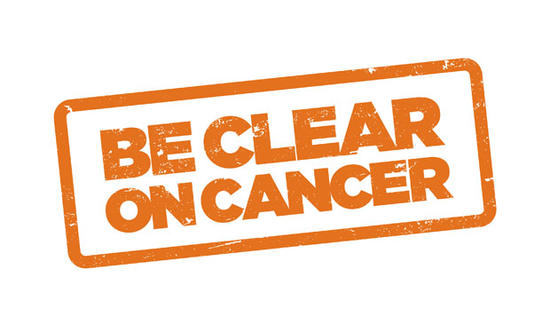Campaign evaluation

Evaluation Summary
Get the detailed evaluation results from the Be Clear on Cancer Campaigns.
Results of previous bowel cancer campaigns are shared below. These results may be helpful to those planning local activity, preparing for an upcoming national campaign or interested in the impact of Be Clear on Cancer on bowel cancer referral and survival outcomes.
The initial findings following the first national campaign have been positive:
- An increase in referrals for the over 50s. More than 85% of the referrals in February to March 2012 were in people aged 50 or over.
- Statistically significant increases in the public’s unprompted awareness of blood in poo (27% to 42%) and looser poo (10% to 23%).
- Statistically significant increase in the public’s confidence in knowing the signs and symptoms of bowel cancer.
- Increase in urgent referrals to hospitals compared to the same period in the previous year – more than 85% of the referrals were in people aged over 50.
Data on GP attendance, cancers diagnosed and staging will also be analysed and included in the evaluation of the national campaign, but some of this information is not yet available.
Results from the 2011 regional bowel cancer pilot campaign are available here.
Earlier diagnosis of cancer will not be achieved overnight – it’s important to keep running these campaigns to sustain the public’s awareness of the key symptoms. The aim is to build on the first 2012 national bowel cancer campaign, which showed positive results (see above).
Professor Sir Mike Richards, National Cancer Director, explains: “We have always recognised that we won’t solve the problem of low cancer survival rates overnight. Achieving earlier diagnosis of cancer is complex and, as well as improving treatments and access to diagnostics, it’s important to keep running these campaigns to sustain the public’s awareness of the key symptoms and to promote earlier presentation to primary care services. Early results from Be Clear on Cancer are encouraging - we’re seeing positive changes in the target audience in terms of raised awareness and a manageable increase in attendances in primary care and urgent GP referrals.”
In March 2015, the British Journal of Cancer (BJC) published the second NAEDI supplement. The publication showcases a series of papers presenting current evidence on early diagnosis across the patient pathway.
View the full supplement(link is external)
As part of the March 2015 BJC supplement, Moffat et al. (2015) investigated the impact of the Be Clear on Cancer national bowel and lung cancer campaigns. The paper looks at public awareness and GP attendance with symptoms highlighted in the campaigns on samples of the population subgrouped by gender, age and socioeconomic status.
Power and Wardle (2015) looked at existing data from the Cancer Awareness Measure (CAM) to examine the impact of the Be Clear on Cancer campaigns on public awareness of key symptoms of lung and bowel cancer and perceived barriers to seeing a doctor.
Be Clear on Cancer statement
Be Clear on Cancer was a cancer awareness campaign led by Public Health England, working in partnership with the Department of Health and NHS England. This page contains links to documents that we hope you find useful. Please note however that the views or opinions expressed within those links are not necessarily those of Cancer Research UK.
